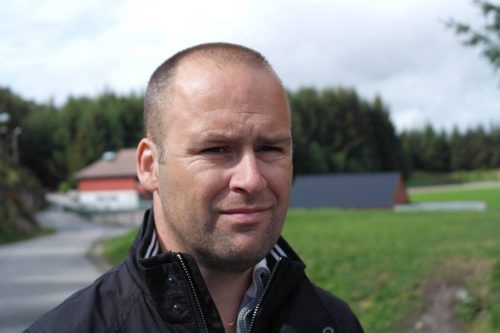The transaction has “John Fredriksen asset play” written all over it, but for Mowi a solid industrial buyer can be just as important as the profit they get from a sale.
It’s no secret. The first of the DESS Aquaculture Shipping wellboats, built cheaply at a shipyard in Turkey, have not worked as well as desired and planned. An experimental architecture, with a chimney just in front of a small and cramped combined wheelhouse and control room, has not made it easy to keep track of the work. The ship design will not go down in history as a bestseller.
Oil to aquaculture
At the same time, DESS Aquaculture Shipping, based in Grimstad, Southern Norway, is far away from the salmon cages. The management is recruited from the oil service industry and the crew on the boats is essentially the same. It is far from rig moves and anchor handling to delousing and smolt transport.

Also read: Massive profit potential as Mowi is ready to sell wellboat stocks
If industrial players such as NTS, Rostein, Sølvtrans, Intership or Aquaship take over of Mowi’s DESS shares, it could also mean strengthening both the administration on land and the crew on the boats. The large customer Mowi in particular, with its long contracts, will benefit from this.
Having said that, this looks like a classic Fredriksen transaction.
DESS Aquaculture Shipping, spun out of the old offshore supply company Deep Sea Supply, is 50/50 owned by Mowi and John Fredriksen’s wholly owned investment company Hemen Holding. As the bottom fell out of the offshore supply market five or six years ago, the duo invested money and steel in salmon. First with serviceboats and wellboats, later also processing boats.
Opportunistic and rational
The choice was opportunistic. With very good odds for a nice profit. Mowi was crystal clear that this was not core activity, and thus something that would sooner or later be disposed of. It was not the first time John Fredriksen, who is also the largest shareholder in Mowi, had built boats in a fiery market – and will make a profit while the game is at its peak.
It was also rational. Had they not chosen to do this on their own book, Mowi would have had to rely on other shipowners, which could drive wellboat rates for them as a customer even higher. They thus secured a hedge at galloping rates. Through DESS, they have built on speculation, but it has not been particularly risky. For Mowi is in any case the largest customer for most of the old wellboat companies.
In other words, as they often say at Wall Street, the risk versus reward has been very favorable.
Classical
In addition, the boats built in Turkey are significantly cheaper than comparable boats in the fleets of Sølvtrans, Rostein and NTS. So they have built cheaply, and can now sell expensive. Classic asset play.
At the same time, it is the case that in a fish farming company that now cuts costs, downsizes and struggles with sales in a corona-marked market, a shipping sale will be able to offer increased revenues, results and dividend opportunities to a significant degree.
All for the benefit of the shareholders.


